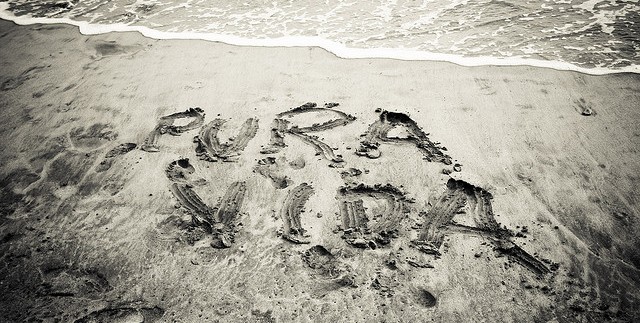
Getting versed in Tiquismos: Costa Rican colloquialisms
Costa Rican’s have a unique version of Spanish, with their own set of idioms, slang and exclamations. During your visit to Costa Rica you’re probably going to encounter quite a few of these Tiquismos, and you may find it handy to know what they mean.
From the minute you step off the plane you are going to hear the popular phrase “Pura Vida.” This Tiquismo is all over Costa Rica, and as you’ll quickly realize, very fitting to the Costa Rican experience. “Bueno nota” is another popular phrase that you might hear, perhaps uttered by your tour guide as he tracks you through Manuel Antonio National Park. A “tico” could point and say, “Una teja,” after you ask him for directions to the Arenal Volcano in La Fortuna. You may find yourself enjoying one of the Nicoya Peninsula’s pristine beaches, when a friendly person says, “Idiay!” Or maybe you’re just enjoying the nightlife in Monteverde or Tamarindo when you see two surfers greet each other with a high five, saying, “Que m’iche, mae!”
The point is, quite a few special moments could get lost in translation, and we don’t want you to miss a thing in Costa Rica! So, we’ve provided you with a short crash course of words and phrases endemic to the Costa Rica Spanish language.
Top 5 Tiquismos:
Tico/Tica/Ticos (tee-koh, tee-kah): Costa Ricans (man/woman/plural)
Pura Vida (poor-ah vee-dah): This is one of the most common sayings in Costa Rica. Translated into English, Pura Vida means “pure life.” It can also mean good, excellent, and easy going. It is always a positive saying. You can say Pura Vida when greeting someone, when saying good bye, and even when referring to someone as a “cool” person.
Mae (my): Mae is slang for “dude.” It’s common to hear teenagers call each other Mae during a conversation. It’s also used when referring to “that guy.” It’s not very common for women to use this word.
Tuanis (too-ahn-ees): This is the street version of Pura Vida. When referring to how you’re doing it means “good.” It can also be used to say someone is cool, a “tuanis” person. Since tuanis is a more gritty version of Pura Vida, it’s used mostly by men.
Que Jeta! (kay hee-tah): This means “I can’t believe it,” or is an exaggerated expression. It’s used when someone is told an unbelievable story and is shocked to hear such news.
Want to learn more? Well, here’s a few additional Tiquismos:
Buena Nota: Cool or all right, or when something has a good vibe
Chunche: Thingamajig
Comedera: Food or groceries
Como amanecio?: How are you doing this morning?
Di/diay: Used at the beginning of a sentence, similar to “um” or “well”
Dolor de Jupa: Headache
Estar be goma: Suffering from a hangover
Fut: Short for futbol or soccer
Guila: A kid
Idiay: Hello! What’s new?
Jamar: To eat
Jumas: Drunk
La choza: Home
La vara: The thing
Mucho gusto: Translates directly as “(with) much pleasure,” Costa Ricans use this in lieu of “de nada” or thank you
No entender ni papa: To not understand a word
No joda/no jodas: Don’t bother me
Ojo: Watch out
Pachanga: Party
Por dicha: Thank goodness
Pulpier: A small corner store
Que Cuentos: Yeah right
Que m’iche?: What’s up? What do you have to tell me?
Que mala nota: What a bad person
Que pereza: Ugh, what a drag
Que Torta: What a mess
Salado: Unlucky or “too bad”
Saludes: Greetings
Soda: A small, typically family-run, restaurant
Soque: Hurry up
Tipico: Native: Style, i.e. Comida Tipica (traditional food)
Tome chichi: Though this phrase has no direct translation it is essentially a teasing form of “take that”
Una teja: 100 of anything, usually money (100 colones). For directions it means one block (100 meters)
If you’re serious about learning more Tiquismos, your iPhone can help you out! There is a new iPhone app to help you talk Tico. Download it before your trip to Costa Rica and you’ll be saying “por dicha” throughout your entire trip. Or if you don’t have an iPhone, Quizlet.com has flashcards for you to practice your Costa Rican slang before you leave.
There are plenty of great websites that have extensive lists of Costa Rican Spanish, like costaricaspanish.net where you will find vocabulary tips, tips for learning Spanish, and even Spanish survival phrases. So, “Soque!” Go get prepared for your next “Pura Vida” adventure!

